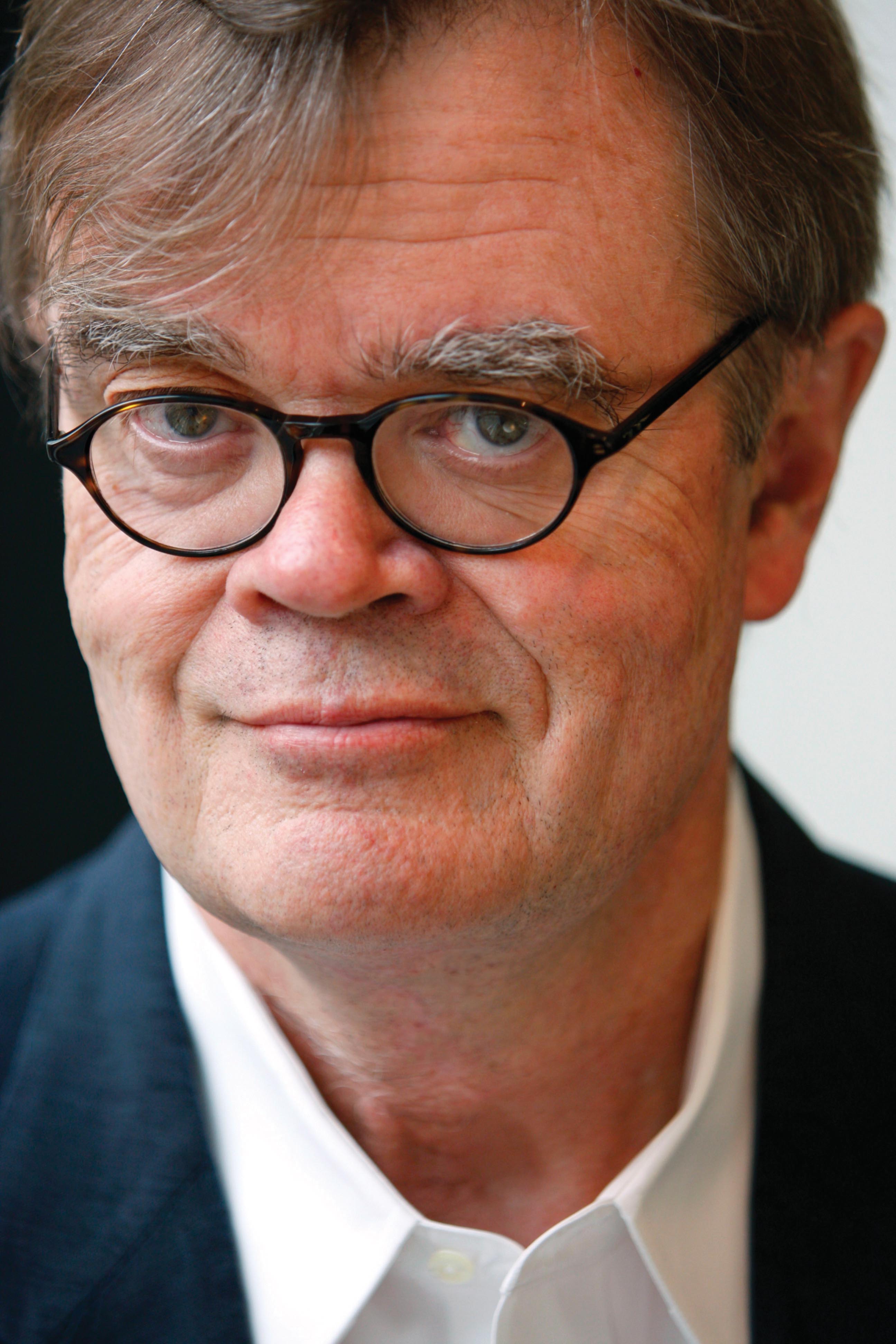Garrison Keillor citáty a výroky
Garrison Keillor: Citáty v angličtine
“Cats are intended to teach us that not everything in nature has a purpose.”
As quoted in The Cat Lover's Book of Fascinating Facts : A Felicitous Look at Felines (1997) by Ed Lucaire
Though Keillor has been quoted on the internet and in print as having made this or a similar remark, such expressions have been made by others, and may have originated with Billy Sunday, who is quoted as having said "Going to church on Sunday does not make you a Christian any more than going into a garage makes you an automobile!" in Press, Radio, Television, Periodicals, Public Relations, and Advertising, As Seen through Institutes and Special Occasions of the Henry W. Grady School of Journalism (1967) edited by John Eldridge Drewry.
Disputed
Varianta: Going to church no more makes you a Christian than standing in a garage makes you a car.
“A book is a gift you can open again and again.”
Attributed to Keillor in The Miracle of Language (1999) by Richard Lederer, p. 149, this statement also appears in What? (1988) by Ronald Silliman, p. 28:
A book is a gift you can open again and again especially when you're writing it yourself.
Disputed
"Garrison Keillor: God help us. We’re in trouble down here." in The Washington Post (26 July 2016)
Kontext: We made our mistakes back in the 20th century, Lord knows, but we never nominated a man for president who brags about not reading. Calvin Coolidge had his limits. Warren G. Harding spent more time on his hair than strictly necessary. Lyndon Baines Johnson was a piece of work. But all of them read books. When I envision a Trump Presidential Library, I see enormous chandeliers and gold carpet and a thousand slot machines. God help us. I mean it. We’re in trouble down here.
We Are Still Married : Stories & Letters (1989),, "The Meaning of Life", p. 217 <!-- Viking -->
Kontext: To know and to serve God, of course, is why we're here, a clear truth, that, like the nose on your face, is near at hand and easily discernible but can make you dizzy if you try to focus on it hard. But a little faith will see you through. What else will do except faith in such a cynical, corrupt time? When the country goes temporarily to the dogs, cats must learn to be circumspect, walk on fences, sleep in trees, and have faith that all this woofing is not the last word. What is the last word, then? Gentleness is everywhere in daily life, a sign that faith rules through ordinary things: through cooking and small talk, through storytelling, making love, fishing, tending animals and sweet corn and flowers, through sports, music and books, raising kids — all the places where the gravy soaks in and grace shines through. Even in a time of elephantine vanity and greed, one never has to look far to see the campfires of gentle people.
“I believe in looking reality straight in the eye and denying it.”
As quoted in Precision Shooting : The Trapshooter's Bible (1998) by James Russell, p. 54
Varianta: Sometimes you have to look reality in the eye, and deny it.
“Thank you, dear God, for this good life and forgive us if we do not love it enough.”
Zdroj: Leaving Home (1987), p. 9
Kontext: Thank you, dear God, for this good life and forgive us if we do not love it enough. Thank you for the rain. And for the chance to wake up in three hours and go fishing: I thank you for that now, because I won't feel so thankful then.
"Cowboy Librarians" (13 December 1997)
A Prairie Home Companion
Zdroj: Dusty and Lefty: The Lives of the Cowboys
"Post to the Host" (July 2005) http://www.publicradio.org/columns/prairiehome/posthost/2005/07/
Kontext: Journalism is a good place for any writer to start — the retailing of fact is always a useful trade and can it help you learn to appreciate the declarative sentence. A young writer is easily tempted by the allusive and ethereal and ironic and reflective, but the declarative is at the bottom of most good writing.
Happy to be Here (1983), p. 259
Zdroj: Happy to Be Here
See also the Wikipedia article on the Lake Wobegon effect.
A Prairie Home Companion, News from Lake Wobegon
Lake Wobegon Days (1985), p. 337
Zdroj: Lake Wobegon U.S.A.
“Be well, do good work, and keep in touch.”
Trademarked closing lines in The Writer's Almanac http://writersalmanac.publicradio.org/
Zdroj: Good Poems
“I think the most un-American thing you can say is, “You can't say that.””
As quoted in The Nastiest Things Ever Said About Democrats (2006) by Martin Higgins, p. 171, and The Nastiest Things Ever Said About Republicans (2006) by Martin Higgins, p. 204
